
ThinkPad is a line of business-oriented laptop computers and tablets, the early models of which were designed, developed and marketed by International Business Machines (IBM) starting in 1992. IBM sold its PC business, including laptops to Lenovo in 2005, and since 2007, all new ThinkPad models have been branded Lenovo instead. The Chinese manufacturer further developed the line, and is still selling new models in 2024.

The IBM PC Convertible is a laptop computer made by IBM, first sold in April 1986. The Convertible was IBM's first laptop-style computer, following the luggable IBM Portable, and introduced the 3½-inch floppy disk format to the IBM product line. Like modern laptops, it featured power management and the ability to run from batteries.

The IBM ThinkPad 701 is a subnotebook in the ThinkPad line by IBM. The 701 is colloquially known as the Butterfly due to its sliding keyboard, which was designed by John Karidis. It was developed from 1993 and sold from March 1995 until later that year and priced between $1,499 and $3,299. The 701 was the most sold laptop in 1995 and has received 27 design awards. It was based on either the DX2 or the DX4 version of the Intel i486, combined with the CT-65545 graphics chip. The 701Cs version used a DSTN display, while the 701C used a TFT LCD. It was pre-installed with Windows 3.11 and for the DX4 models also with OS/2 Warp 3.0. The 701 was discontinued because the keyboard design was no longer a necessity after screen sizes increased. After its discontinuation there has been some speculation about a new notebook with a butterfly style keyboard.

Subnotebook, also called ultraportable, superportable, or mini notebook, is a type of laptop computer that is smaller and lighter than a typical notebook-sized laptop.
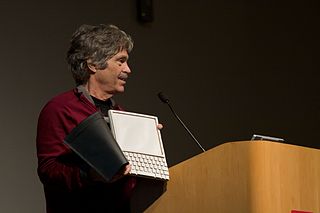
The history of laptops describes the efforts, begun in the 1970s, to build small, portable personal computers that combine the components, inputs, outputs and capabilities of a desktop computer in a small chassis.

IBM ThinkPad 310 was a notebook computer series introduced in 1997 by the IBM corporation into the market as part of their ThinkPad laptop series. It was succeeded by the ThinkPad 380 series.

IBM ThinkPad 240 is an ultra-portable laptop computer designed and produced by IBM from June 1999 to 2001. It is one of the few ThinkPad 200 series models made available in America and was the smallest and lightest ThinkPad model produced to date. The 240 series was discontinued, and it was replaced with the ThinkPad X series in 2000.
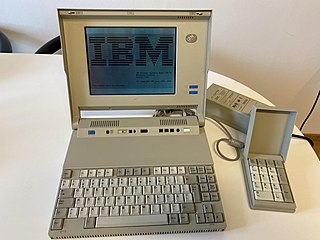
The IBM Personal System/2 Model L40 SX is a laptop made by IBM as part of the IBM PS/2 series. It was the successor to the IBM PC Convertible. The "SX" in the name refers to its CPU, the Intel 80386SX.

The IBM ThinkPad 365 is a notebook computer series developed by IBM and manufactured by ASE Group. It was released in North America in November 1995, and was the successor of the ThinkPad 360 series. The series had eight models that were released before being discontinued, and was succeeded in 1997 by the ThinkPad 380 series.

The IBM ThinkPad 300 is a notebook computer series that was created by Zenith Data Systems for IBM. It was released in North America in October 1992, alongside the ThinkPad 700 series. It was the second series for the ThinkPad line of notebook computers, and was a cost saving alternative to the 700. It was however known as one of IBM's failures, with most not working properly or being dead after leaving the production line. It was also grey instead of black, and was missing a TrackPoint, which made them unappealing to consumers. The ThinkPad 300 was received as decent, but did not sell well.

The IBM Thinkpad 350 series was a notebook computer series introduced in 1993 by IBM as part of their Thinkpad laptop series. It was the successor to the IBM ThinkPad 300. With only 2 models ever made in the series, it was succeeded in 1994 by the IBM Thinkpad 360 series.
The IBM ThinkPad 500 is a subnotebook from the ThinkPad series released by IBM in 1993.

The IBM ThinkPad 700 is the first notebook computer for the ThinkPad brand that was released by IBM on October 5, 1992. Another series was released alongside it, the ThinkPad 300 series. The 300 series was meant to be a cheaper, lower performance model line over the 700. It was developed as a successor to the L40SX.

The ThinkPad 755 is a series of high-end notebook-sized laptops released by IBM from 1994 to 1996. All models in the line feature either the i486 processor or the original Pentium processor by Intel, clocked between 50 and 100 MHz. The ThinkPad 755CD, introduced in October 1994, was the first notebook on the market with an internal full-sized CD-ROM drive. The ThinkPad 755 series was the top-selling laptop for much of 1994, beating out competition from Apple Computer and Compaq. IBM replaced it with the ThinkPad 760 series in January 1996.
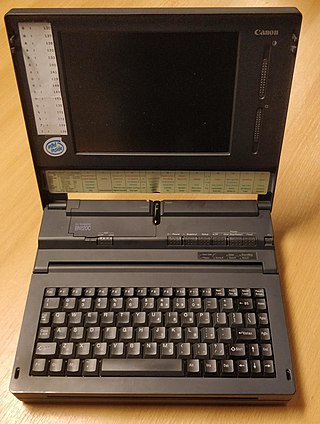
The Canon NoteJet is a series of notebook computers which include a printer and scanner that was manufactured from 1993 to 1995 by a joint venture between the Canon subsidiary Canon Computer Systems Inc. and IBM subsidiary IBM Japan. The Canon branded series was sold worldwide except in Japan, where the similar IBM ThinkPad 555BJ and 550BJ was sold. The European model did not use the NoteJet branding and was branded as the Canon BN120C, BN22 or BN200.

The IBM ThinkPad Power Series(800/820/821/822/823/850/851/860) is a laptop series from the ThinkPad line that was manufactured by IBM. It is based on the PowerPC architecture.
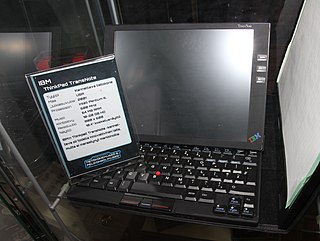
The IBM ThinkPad TransNote is a notebook computer by IBM.
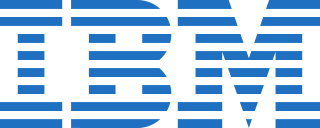
The IBM PS/2 Note and PS/note are a series of notebooks from the PS/2 line by IBM. It was announced in March 1992, half a year prior to the release of the first ThinkPad, the IBM ThinkPad 700. The series was discontinued in 1994.

The IBM Personal System/55 Note is a series of notebooks manufactured by the IBM subsidiary IBM Japan as part of the IBM Personal System/55 series.

A notebook computer or notebook is, historically, a laptop whose length and width approximate that of letter paper.


















